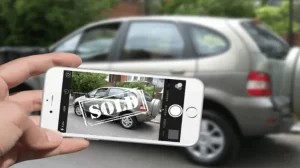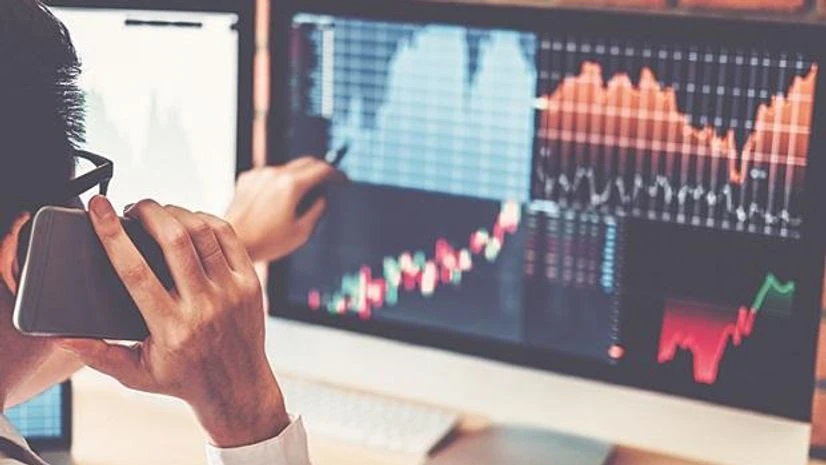How To Make A Killing In The Experts Industry

The term “experts industry” was coined by Brendon Burchard in his book, The Millionaire Messenger. Brendon is one of the towering figures in the experts industry. His Millionaire Messenger was #1 on Amazon’s best-seller list for 40 weeks and catapulted the author to the top of the pile in the industry.
Brendon went on to launch the now defunct Experts Industry Association and the run-away successful “The Expert Academy” and the “High Performance Academy.”, becoming an instant sensation. Oprah describes him as “One of the most successful online trainers in history.”
But how did the self-help industry get started? The terms experts industry, self-help, self help, personal development, personal improvement, personal growth, self-improvement, and information marketing are often used today interchangeably.
The industry is increasingly referred to as the experts industry in recent times because, according to Brendon Burchard, “It’s where experts operate.”
The term self-help (also used without hyphen) was the term first used to describe the industry and was coined by Samuel Smiles, a Scottish Doctor, in 1859. However, the term (self-help) is now viewed as derogatory because of the assortment of snake oil salesmen or charlatans that prowl about, online and offline, seeking who to unleash their fake wares and cures.
Sacramentochiropractic.com, points out that the origins of self help date back to the book “The Constitution of Man,” written by a Victorian phrenologist, George Combe, in 1828. It was followed, according to them, by Ralph Waldo Emerson’s “Compensation” in 1841.
Quoting market research.com, Iulia-Cristina Uta shared the information that “the self-improvement market was worth $9.9 billion in 2016 and is estimated to grow to $13.2 billion by 2022, with 5.6% average yearly gains.” That’s a total growth rate of 33.33% meaning there is room for any determined soul to jump in.
I her article in brandminds.ro and quoting Niels Eek, a psychologist, Iulia-Cristina Uta threw a sharp light on what the industry is all about. She asserted, “Self-improvement is about consciously identifying and developing one or more facets of your life. From the perspective of an entrepreneur, self-improvement will often entail some sort of mental training but can mean anything from practicing stress management to valuable goal-setting. Professionals are often keen to learn things like time-management techniques (for better prioritizing tasks) and increasing productivity without compromising mental wellbeing.”
The self-improvement market is wide and encompasses a large variety of products and services, ranging from books, to e-books, online courses, coaching programs, webinars, “academies”, “universities”, “masterminds”, master-classes, conferences, and mobile apps according to brandminds.ro.
Taking the digital angle, Hazel Davi, a guest blogger at virgin.com quoted various sources and research findings as pointing to the fact that compared to other age groups, millennials are the most driven to engage in self-development.
Writing under the title, “What does self-improvement look like in the digital age?”, she asserted, “Millennials love self-improvement; whether it’s learning how to be an inspirational leader or change-maker, coding for beginners or leaning In – they seemingly can’t get enough of it.”
Since its creation in 1859, the industry has become unstoppable with thousands of “gurus” peddling their wares to whoever cares to read, listen, view, try, and buy. When asked whether he was a “guru”, Peter Drucker had said, “The term charlatan was too difficult to pronounce so someone invented the word guru.”
In that regard marketresearch.com has this to say, “Consumers are realizing that there are many so-called “experts” now peddling a variety of online “masterminds”, “academies”, “universities” and coaching services. Too many, in fact. As a result, gurus are trying to figure out how to cut through the clutter while consumers are trying to identify legitimate, competent experts.”
The US is unique in that it’s the only country in the world I know of where a full month is set aside for self-help. According to sacramentochiropractic.com, September is National Self Improvement Month in the US. According to the blog, “It’s a time to reflect upon your life, set new goals and take strides to make personal changes in order to achieve the life you truly wish.” Any wonder the US is the global center of gravity for self-help?
Any wonder the biggest names in the industry in the English speaking world are all Americans? The following 20 living and long gone legends readily come to mind, not in any particular order: Napoleon Hill, Jay Abraham, W. Clement Stone, Jack Canfield,
Dale Carnegie, Mark Victor Hanson, Jim Rohn, Tony Robbins, Charlie “Tremendous” Jones, Marcia Weider, Dr. Wayne W. Dyer, Joe Polish, Deepak Chopra, Gary Vaynerchuk, Zig Ziglar, Tim Ferriss, Les Brown, Peter Diamandis, Brian Tracy, Brendon Burchard.
In the English speaking world, no two people have made bigger impact in the self-improvement industry than Sir Richard Branson and Oprah Winfrey. But they belong to a special class of their own, the billionaire’s class.
Branson’s business empire spans the globe and he always finds time to motivate the new generation. His book, How I Lost My Virginity, is an evergreen classic on motivation.
Oprah is not far left behind. Her OWN (Oprah Winfrey Network) and The Oprah Winfrey Show attract millions worldwide. Get your book onto the Oprah Book Club and you’re made for life. Such is the magnate of the Oprah brand.
According to webwire.com, the self-help industry was worth $11 billion in the US in 2019. Thanks to the COVID-19 pandemic, the industry is growing even bigger in 2020 as the explosive growth for the services of online webinar companies such as ZOOM, Webinar Jam, and Microsoft Teams illustrate. The future of the industry has never been brighter.
The dollar-worth of the various segments of the self-help industry in 2019, according to marketresearch.com, as quoted in brandminds.ro, was as follows:
• Self-help audio books – $769 million
• Self-improvement books – $800 million
• Self-improvement apps – $27 million
• Personal coaching services – $1 billion in the US
• Motivational speakers – $1 billion per year combined
To make a killing in the self-help industry and join the long list of millionaires, you need to pick a niche and pitch your tent. If you know your onions and choose the right strategies, you can make a killing within a year or two.
The internet has put self-help within the reach of anyone with something of value to over. Indeed with a laptop, internet connection, and a message or a product the market is hungry for, you can create impact with blistering speed and dance all the way to the bank.
The key to success is identifying a lucrative niche that matches your expertise. Here are the top nine niches according to marketresearch.com:
1. Infomercials
2. Audio books
3. Self-improvement Books
4. Self-improvement apps
5. Personal Coaching
6. Motivational Speakers
7. Weight Loss Programs
8. Public Seminars
9. Holistic Institutes & Training Companies
I first stumbled on the self help industry some 30 years back. Brian Tracy’s motivational tapes wetted my appetite. At about the same time, I stumbled on Jay Abraham’s “12 Pillars of Business Success”. That led me to “Success Magazine”, and later “Excellence Magazine”. It was not long before I stumbled on Tony Robbins’ best-selling books “Unlimited Power”, and “Awaken The Giant Within”. I’ve never looked back.
While the industry as we know it today took off “officially” in 1859 with the publication of Samuel Smiles book, Self Help, which sold 250,000 copies, motivating people, with oratory, dates back to antiquity.
As Adlai Stevenson once alluded, “When Cicero turned to the crowds in ancient Rome, people said, ‘great speech’. When Demosthenes spoke to the crowds in ancient Greece and people turned to each other, they said: ‘Let’s march.'”
So self-help dates back at least 2400 years. However, it really took off with gusto with the advent of newspapers, radio, television, and now, the internet. There is no better time than now to jump into the experts industry and make a fortune for yourself. With a free 90-minute webinar, you could make $10,000 before the webinar is over. Is that not worth giving it a try?





)